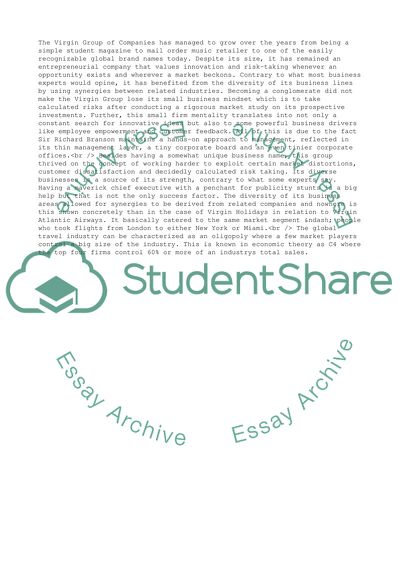Cite this document
(The Virgin Group of Companies Essay Example | Topics and Well Written Essays - 2750 words, n.d.)
The Virgin Group of Companies Essay Example | Topics and Well Written Essays - 2750 words. Retrieved from https://studentshare.org/business/1557102-case-study-on-virgin-marketing-strategy
The Virgin Group of Companies Essay Example | Topics and Well Written Essays - 2750 words. Retrieved from https://studentshare.org/business/1557102-case-study-on-virgin-marketing-strategy
(The Virgin Group of Companies Essay Example | Topics and Well Written Essays - 2750 Words)
The Virgin Group of Companies Essay Example | Topics and Well Written Essays - 2750 Words. https://studentshare.org/business/1557102-case-study-on-virgin-marketing-strategy.
The Virgin Group of Companies Essay Example | Topics and Well Written Essays - 2750 Words. https://studentshare.org/business/1557102-case-study-on-virgin-marketing-strategy.
“The Virgin Group of Companies Essay Example | Topics and Well Written Essays - 2750 Words”, n.d. https://studentshare.org/business/1557102-case-study-on-virgin-marketing-strategy.


